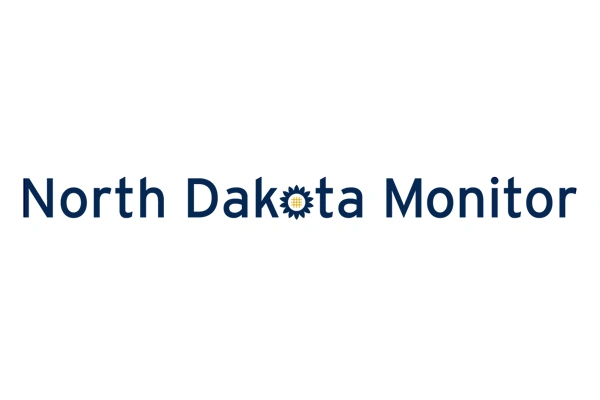In the last week of his second term, North Dakota Gov. Doug Burgum said he regrets not doing more to curb spending that resulted in more than a third of the state’s budget being allocated out to local subdivisions.
In an interview with the North Dakota Monitor, Burgum said cities and counties should live within their budgets and not always rely on the state for additional funds.
About $5.5 billion of the $19.5 billion state budget he proposed to lawmakers last week during their organizational session are transfers to those local subdivisions, Burgum said.
“There still is a belief that it’s the state Legislature’s responsibility to drive these subsidies where we take some people’s tax money and send it to local political subdivisions,” he said.
Some of the local budget bloat, Burgum said, was due to horizontal expansion of these cities with new projects being constructed on the outskirts of town that can add street and utility construction to the overall project price tag. Those cost increases may force municipalities to raise local property taxes to cover the additional costs, he said.
“The way you would help them is actually to get local government to build more efficient systems around schools, parks, cities, which means they need to be more efficient on streets, roads, sewer, water and garbage collection,” Burgum said.
Burgum stressed cities should practice more in-filling of their communities, which means using open locations with streets, sewer, water and electricity already running to them in a way to cut down the costs of new development and save taxpayers some property tax burden.
“This was true before I got elected and it’s still true today. I just regret that I have not been able to help educate local decision makers, or the Legislature, that these design decisions are the ones that are driving cost,” he said.
He added the state’s Main Street initiative offers cities access to tools and resources to capitalize on their local strengths and make sound planning decisions.
Proudest moments
One of Burgum’s proudest moments during his two terms, he said, was income tax relief to North Dakotans during the 2023 legislative session.
“If you can eliminate income tax for 60% of North Dakotans, that’s a big deal,” Burgum said.
He added the state was able to cut taxes, increase funding for education and complete large infrastructure projects at the same time.
“Some people lower taxes by starving real needs, but we’ve met all the real needs on infrastructure,” Burgum said. “This is eight years of ‘and’ not ‘or.’ Not in the beginning. In the beginning, we had to start with the biggest cuts in the last hundred years, but that got us on a good path.”
Another issue he believes is in a better spot now than when he took office is the focus on behavioral health and addiction services in the state.
Burgum said first lady Kathryn Burgum’s focus on reducing the stigma surrounding addiction throughout his time in office showed the state how important that issue was to them as a family. He added his administration’s expansion of regional behavioral health and addiction services through the state’s Free Through Recovery program reduces recidivism in the criminal justice system and gives those dealing with addiction issues a positive outlet to improve their lives.
“We had a massive shortage of addiction recovery counseling in the state,” Burgum said. He said the state added 1,200 certified peer support specialists during his time in office to help those with addiction issues.
“It works and it saves taxpayers money, and it’s the right thing to do,” he said. “It’s really unique in the country because if a peer support specialist working with one of their clients helps them find a place to live, get a drivers license, get a job, they get paid more.”
He said those simple things help keep people from reentering the prison system and those specialists, and their work, should be celebrated for all those people they have helped through the years.
Difficult situation
When asked what was the most difficult situation he encountered over the last eight years, Burgum said it happened immediately after being sworn-in for his first term – finding a peaceful resolution to the Dakota Access Pipeline protests on the Standing Rock reservation.
“Coming from the private sector and then on day one … there’s already 700-plus National Guard called out and there’s daily non-stop threats of violence,” he said.
Burgum said he was grateful the situation didn’t turn into a tragedy similar to the Vietnam protests at Kent State University in 1970 that left four dead and nine wounded after Ohio National Guard soldiers opened fire on the protestors.
“We were one mistake and trigger pull away from that being Kent State and then we would’ve permanently had a scar on the state,” he said.
Burgum said he was grateful for an eventual peaceful resolution to the conflict and for the leadership of law enforcement and the National Guard during a difficult time in the state’s history.
Burgum added he believed his eight years in office may have proceeded a lot differently if the DAPL protest ended with a tragic result.
In the time since the DAPL protests, he said relations have improved with the five Native tribes located in North Dakota.
When Burgum was nominated to serve as the next secretary of the Interior, Mark Fox, chairman of the Mandan, Hidatsa and Arikara Nation, called the move a “match made in heaven” for North Dakota tribes.
Carbon neutrality
In 2021, Burgum said he believed North Dakota could become carbon-neutral by 2030 without any mandates or regulations, but instead through its unique geology and innovation. Burgum said he still believes that challenge can be met.
He said the state’s permitting, pooling of landowners’ underground storage space and liability protection surrounding carbon sequestration has other states looking to North Dakota for answers.
“Now we’ve got people that are looking at low carbon pig iron potentially,” Burgum said, referring to a project near Underwood. “You could end up with a steel mill in North Dakota because if we end up with the lowest carbon pig iron, and we’ve got the water and the energy to do that … these are $10 billion projects.”
Burgum chairs the North Dakota Industrial Commission, which today is considering a controversial carbon sequestration proposal from Summit Carbon Solutions.
He said he believes that North Dakota’s success in carbon sequestration could spur innovations nationwide.
Armstrong administration
On the incoming administration, Burgum said Gov.-elect Kelly Armstrong has strong experience as a former state and federal lawmaker that will serve him well as governor. He said he plans to leave Armstrong a personal note for him to read once he takes over Sunday.
Burgum said he appreciated the relationship between the state’s three federal lawmakers and the governor’s office during his time as governor, which is a relationship he hopes to keep in the future as he progresses through the confirmation process to become the country’s next secretary of the Interior.
As for his first day as a non-elected citizen in eight years, Burgum said he plans to spend Sunday and part of Monday in Medora to meet with representatives of the Theodore Roosevelt Presidential Library as they continue to build their facility at Theodore Roosevelt National Park, which would fall under the purview of Burgum’s Interior Department.
Lt. Gov. Miller’s plans
Lt. Gov. Tammy Miller said she plans to work part-time after leaving office Sunday and take a step back to care for a family member facing health concerns. She added she plans to sit on some corporate boards and seek out some consultant opportunities.
Miller had previously served as CEO of Border States, a large electrical supply distributor in Fargo.
She is also not ruling out running for another elected position in the future.
“I do have a number of areas in the state that I’m super passionate about and still want to continue to help in those areas,” Miller said. She wants to continue to advocate for the state’s military service members and veterans, she added.
In the two years she served as lieutenant governor, Miller said she learned more about all the services the state provides for North Dakotans and all the people that help make those services a reality.
“The quality of the team members that are working in these agencies, who really believe in the purpose, and are passionate about serving the citizens of North Dakota, that has been so refreshing,” Miller said. “Looking back, I kind of regret not getting involved in state government earlier in my life.”




